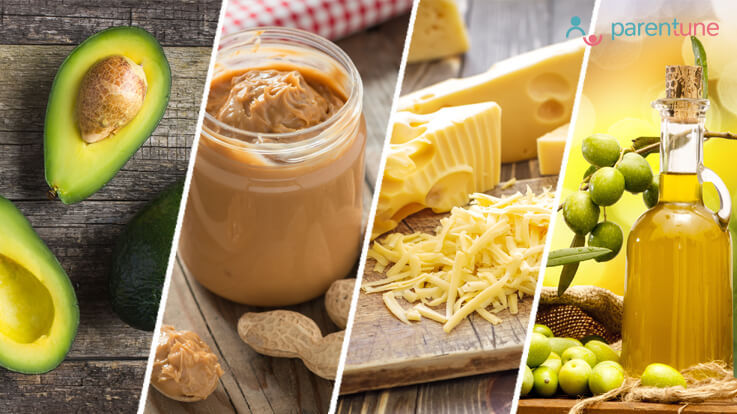Which Fruit Increase Baby Weight?
Papaya is a fruit that has been known to increase baby weight due to its high nutritional content. This tropical fruit contains vitamin c, folate, and fiber, and is also a great source of beta-carotene.
Beta-carotene has been shown to improve fetal growth and weight gain. Consuming papaya during pregnancy can also aid in digestion and prevent constipation. However, pregnant women should be cautious when eating papaya, as unripe or partially ripe papaya may contain substances that can cause uterine contractions and lead to a miscarriage.
While there are various fruits that offer an array of nutritional benefits for pregnant women and their developing babies, papaya is one of the fruits that stands out due to its distinct potential to contribute to healthy weight gain during pregnancy. In this article, we will explore the nutritional components of papaya that make it helpful in increasing baby weight. We will also provide some additional information regarding the consumption of papaya during pregnancy.

Credit: www.parentune.com
Bananas: A Powerful Source Of Nutrients
Bananas: a powerful source of nutrients bananas are a fantastic choice for parents looking to increase their baby’s weight. They are a powerhouse of nutrition, containing essential vitamins, minerals, and fiber. Bananas are an excellent source of energy and help in building strong muscles.
The fiber content in bananas aids in digestion and prevents constipation. It’s easy to include bananas in your baby’s diet, as they can be mashed and added to cereal or yogurt. Bananas can also be blended with other fruits to make a delicious smoothie or added to pancake batters for a nutrient-packed breakfast.
So, go ahead and introduce bananas to your baby’s diet for a healthy and delicious weight gain!
Avocado: The Ultimate Superfood
Avocado is known as a superfood for its outstanding nutritional value. This fruit is rich in healthy fats, fiber, potassium, and vitamins c, k, and b6. Adding avocado to a baby’s diet can support weight gain due to its high-calorie content and healthy fats.
Moreover, it can aid digestion, improve brain development, and reduce inflammatory reactions. There are many ways to incorporate avocado into your baby’s meals, such as mashed, pureed, or sliced. You can add avocado to baby’s toast, salads, or smoothies. Avocado is easy to prepare and has a creamy texture that makes it a favorite among babies.
Moreover, it is a perfect alternative to dairy products that may cause food intolerances or allergies.
Sweet Potatoes: The Fiber-Rich Option
Sweet potatoes are an excellent choice when it comes to increasing your baby’s weight. These fiber-rich vegetables are high in essential nutrients, including vitamins a, c, and b6, potassium, and dietary fiber. Sweet potatoes can help with weight gain due to their high-calorie content.
There are many ways to incorporate sweet potatoes into your baby’s diet, including as purees, steamed, boiled, or baked. They can also be added to soups, stews, and casseroles. In addition, sweet potatoes make for a perfect snack or side dish for little ones.
With their delicious taste and nutritional benefits, sweet potatoes are a must-have addition to your baby’s diet.
Mangoes: The Tasty Option
Mangoes are a great option to help increase baby’s weight. They are low in fat and high in fiber, vitamins, and antioxidants. The nutritional content of mangoes includes high levels of vitamin c, vitamin a, and vitamin e which are essential for baby’s growth and development.
Mangoes can also help in digestion, boost the immune system, and prevent constipation. You can introduce mangoes into your baby’s diet in a mashed or pureed form or mix it with other fruits or yogurt. Mangoes can also be given as a finger food for older babies.
Try to include mangoes in your baby’s diet regularly to see a healthy weight gain in your baby.
Papayas: The Digestion-Friendly Food
Papayas are a great fruit for babies, thanks to their digestion-friendly properties. With a high amount of fiber, vitamin c, and beta-carotene, papayas can help in weight gain and improve overall health. Including papayas in your baby’s diet is easy and enjoyable.
You can offer papaya puree, add it to smoothies, mix it with other fruits, or make homemade papaya snacks. With its unique taste and texture, your baby will love this delicious fruit. Don’t forget to introduce papayas to your little one’s diet after six months of age to avoid any potential allergies.
Give your baby the health benefits of papayas, and watch their weight increase in no time.
Peaches: The Juicy Snack
Peaches are a great choice for moms who want to increase their baby’s weight. Peaches boast a plethora of nutrients like vitamin c, potassium, fiber and antioxidants that support healthy weight gain. Additionally, peaches are also high in calories, which makes them ideal for baby’s growth.
In fact, one serving of peaches contains around 70 calories, providing enough energy to keep your little one satiated for longer periods. Incorporating peaches in your baby’s diet is easy too. You can serve them mashed, as a puree, or simply diced.
Peaches can be added to your baby’s morning cereal or yogurt parfait, making for a sweet and healthy start to the day. Give your baby the gift of healthy weight gain with tasty and nutritious peaches.
Guidelines For Introducing Solids
Introducing solids to your baby is an exciting milestone, but it’s essential to follow certain guidelines. When starting solids, wait until your baby is around six months old and can sit up unsupported. Begin with single-ingredient purees and introduce new foods one at a time.
Take precautions by avoiding choking hazards like nuts and popcorn and never leave your baby unattended while eating. Gradually increase the quantity of each feeding and offer a variety of foods to ensure a balanced diet. While certain fruits like bananas, avocados, and sweet potatoes can help with weight gain, focus on offering a variety of nutrient-rich foods to support your baby’s growth and development.
Tips For Feeding Fruits To Babies
When it comes to increasing baby weight, feeding them fruits can be a healthy option. Choosing the right fruits for the baby is important to ensure proper growth and development. To prepare fruits for babies, you need to peel, chop, and steam them.
Portion sizes for babies should be small and gradually increased. However, there are some common mistakes to avoid while feeding fruits to babies such as giving them fruit juices, offering too much fruit in a day, and not introducing different fruits.
Offering a variety of fruits in the baby’s diet can help increase their weight and provide them with essential nutrients. Just remember to choose age-appropriate fruits and introduce them slowly and carefully.
Frequently Asked Questions On Which Fruit Increase Baby Weight?
What Are The Best Fruits For Improving Baby Weight?
Fruits that can improve baby weight are avocado, banana, mango, papaya, and peach.
How Can Fruit Help My Baby Gain Weight?
Fruits are a great source of vitamins and minerals which help improve digestion, boost immunity, and aid in weight gain.
Is It Safe To Give My Baby Fruits?
Yes, it is safe to give your baby fruits that are ripe, peeled, and pureed or mashed as needed.
How Much Fruit Should I Give My Baby?
You should start with a small amount, such as one or two tablespoons, and increase gradually as your baby grows.
Can Fruits Alone Help My Baby Gain Weight?
While fruits can be a part of a healthy diet for your baby, it’s important to also provide a balance of protein, carbohydrates, and fats.
Conclusion
The idea that fruits can help increase baby weight is a well-known concept, backed by research and studies. Fruits like bananas, avocado, and mangoes are rich in nutrients that can contribute to healthy weight gain in babies. However, it is important to note that the weight of the baby is not the only consideration when it comes to their health, as other factors such as their height, development, and activity level also need to be taken into account.
Moreover, giving your baby a variety of fruits in moderation is key to maintaining a healthy balance of nutrients. As a parent, it is crucial to work with your baby’s pediatrician to determine the right diet and ensure that your baby is on track for healthy growth and development.
Remember, a healthy baby is a happy baby.






